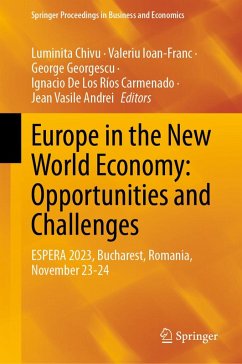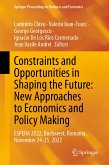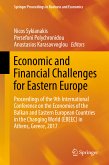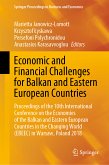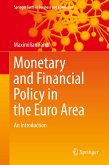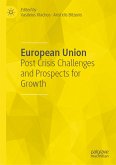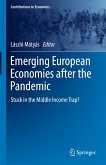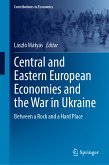The transition from traditional economic patterns to a model marked by enhanced efficiency, environmental responsibility, and the adaptation to a "new normal" economic philosophy marks a pivotal moment in understanding Europe's economic ecosystem within the new world economy. Against the background of accelerating technological progress and national and global interdependencies, in the context of increased exposure to the risks of external shocks, the economic science, as social science, should be more in line with other sciences, on an evolutionary trajectory permanently connected to the processes of human development. This volume explores emerging research topics, methodologies, and techniques that are essential to understand the global economy dynamics and growth patterns under crisis circumstances and persistent uncertainties. The most relevant aspects up for scrutiny are related to new analytical economic frameworks tools and data, resilience in dealing to future shocks, digitalization and green transition, technological innovation and AI, energy system transformation, food safety and security, regionalization of supply chains, debt sustainability and fiscal consolidation, financial system and hybrid risks, synergies between growth, inequality, stability and environment, the future of work, institutional innovation, policy trade-offs and complementarities, redefining well-being and the quality of life, containing systemic threats, geopolitical tensions. The volume offers theoretical and practical contributions as well as quantitative and qualitative analyses providing valuable inputs for the design of adequate strategies and policies, aimed to address the future challenges and to capitalize on the emerged opportunities. The content of this book is of high interest to scholars, researchers, students, practitioners and policy makers, but also to a broader public audience.
Dieser Download kann aus rechtlichen Gründen nur mit Rechnungsadresse in A, B, BG, CY, CZ, D, DK, EW, E, FIN, F, GR, HR, H, IRL, I, LT, L, LR, M, NL, PL, P, R, S, SLO, SK ausgeliefert werden.

